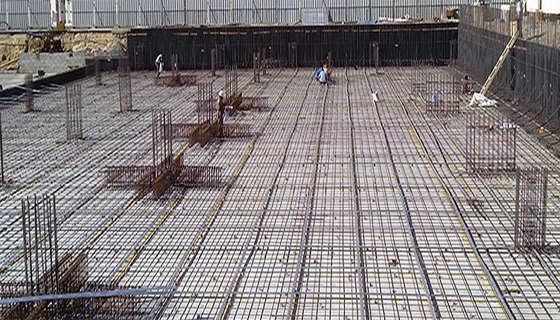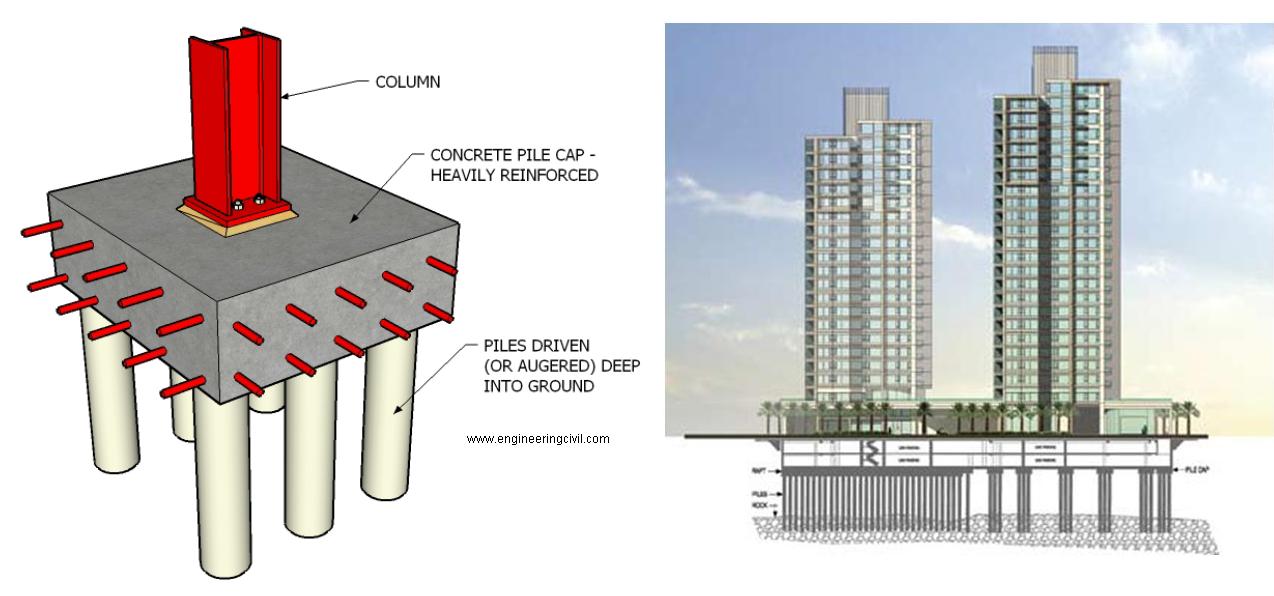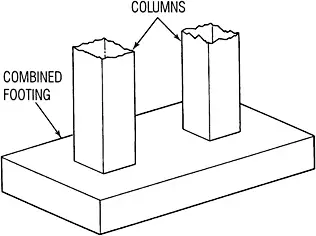TYPES OF FOUNDATIONS
Foundation or Footing is the most important and basic part of a structure. Which functions as to transfers the loads of a structure to the underlying soil. so today we are going to explain the different Types of Foundation or Footing we have.
FACTOR ON WHICH FOOTING DEPENDS:
- Bearing Capacity of the soil.
- Load applied from structure to the foundation.
- Type of Superstructure is going to construct.
- The Condition of the soil.
- The depth of the soil at which safe bearing strata exists.
TYPES OF FOOTING:
8 Types of the foundation-footing is use in construction are described below.
- Isolated Footings.
- Spread Footings.
- Slope Footings.
- Strap Footings.
- Stepped Footing.
- Combined Footings.
- Mat or Raft Foundation.
- Pile Foundation
1.ISOLATED FOOTINGS:
Isolated footing is commonly use in reinforced cement concrete columns because it very is simple and most economical as compare to the other footings. This footing is use to support a single RCC Column. The isolated footings are independent footings for every column and provided for each column separately in buildings.
Restriction in Isolated Footings:
- Columns are not closely spaced.
- Loads on the footing are must be less.
- Safe bearing capacity of the under soil is high at that places.
2.SPREAD FOOTINGS:
In spread footing a spread bars are provided under the column and Wall base. So that the load of the structure is distributed on the wide area of the soil in such a way that the safe bearing capacity of the soil is not exceeded.

3.SLOPED FOOTING:
Normally footing having sloping top or side faces. Isolated sloped footing is use to distribute load evenly from column to the soil.
To transfer the load of column to its base evenly, that’s why we provide sloped pattern of the footing. To distribute load uniformly to the base of column, The rectangular part will also be provided in isolated slop footings.

4.STRAP FOOTING:
The strap footing is the type of combined footing. The strap footings are consisting of two or more reinforcement concrete column connected to each other with concrete beam which doesn’t transfer any type of load to the soil. The main function of the strap footing was to help in the distribution of the weight either heavily loaded column as well as eccentrically loaded column.

5.STEPPED FOOTINGS:
The main purpose of stepped footing was to keep the RCC columns away from the direct contact with the soil to save them from corrosive effect and distribute the load uniformly to the soil.
In the steeped footings all the site slop must be level. The steps must be at least 2 ft in length and height of the steps must be not more than three-quarters of the length of the steps the stepped footing vertical sections must be minimum 6 inch thick.

6.COMBINED FOOTING:
It is used when two or more columns are so close to each other. The combine footing may be trapezoidal or rectangular in plan depending on the site location and design. This type of footings are provided because of these situations if.
- Soil bearing capacity is inconsistent and low within an area
- The column end is situated near the property line and the footing can not be extended.
7.MAT OR RAFT FOUNDATION:
Mat foundation is used when heavy structures are going to be constructed on a soft ground or marshy sites. The mat foundation covers all the entire area under the structure. The mat foundation is also known as raft foundation.

8.PILE FOUNDATION:
A pile foundation is a vertical structural element of a deep foundation, driven or drilled deep into the ground at the building site.


No comments:
Post a Comment